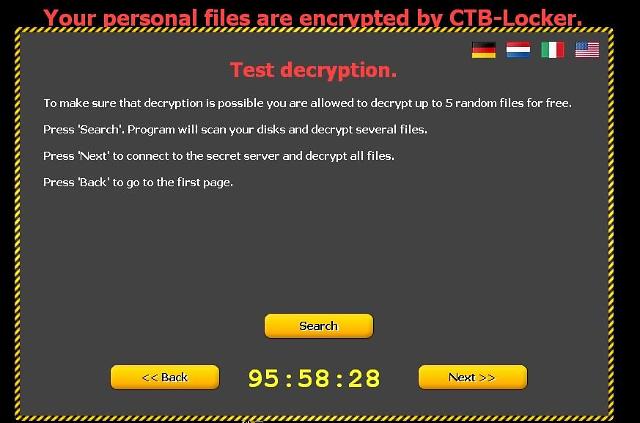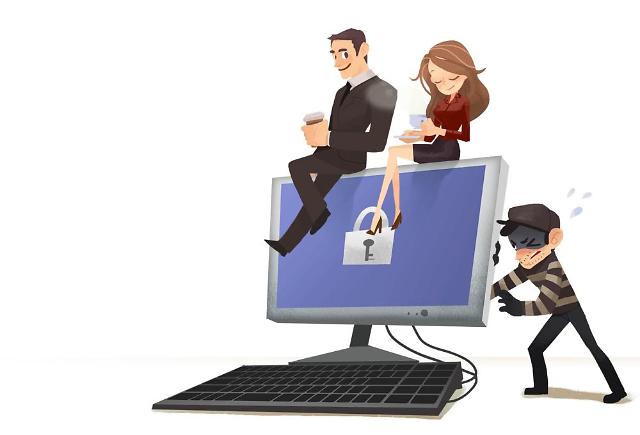
[Screenshot image of ransomware CTB Locker]
Reported cases of hacking known as “ransomware”, a malware which encrypts random files in PC or smartphones, is increasing worldwide. In 2014, eight of Korean financial services including banks, have been infected with ransomware. The numbers have greatly risen this year, over 40,000 cases of the malware infection was reported.
Damages done by Ransomware are almost impossible to recover without help from the hacker, who normally demands payment by bitcoin, digital money, having the users’ files in ransom. It is because the infected files become encrypted by an encryption tool, costumed to fit the hackers’ unique computing codes. Only the hacker who infected the system can undo it.
When infected, ransomware is a threat to a whole network system which the infected computer is connected to. The malware spreads like cancer and it’s very hard to retake control of.
The malware infects computers by various ways. For example, downloading a file from the internet onto a computer or just by entering a website which is already infected with the malware can have the hacker connect to individuals’ computer with no problem.
According to a user of a Korean online community which was attacked with ransomware earlier this year, by paying the hacker to decrypt the files does not always work. “The hacker demanded me to pay him with bitcoins in return of having my computer’s files decrypted and I did so, because I had very important files which I didn't back up,” he said. “But when the files were decrypted, only about 60% of were done. The rest was mangled to the point that nothing could be done to save it”
The computer experts warn the users not to click any suspicious links attached in a mail or uploaded in public bulletin boards. It is known that websites using Adobe Flash are especially vulnerable to the attack. Smartphone users also need to take great concern because unlike previous situations, numbers of ransomware infected smartphones have risen in recent months.
According to an expert from the industry, the only way to be totally safe from ransomware is to have important files backed up onto an external storage such as USB or external hard drives. “Cloud storage system cannot be safe from the attack,” said he, “Hackers may already have access to a user’s cloud storage or by recovering passwords, could delete backed up files on cloud”
아주경제 박세진 기자 = swatchsjp@ajunews.com




